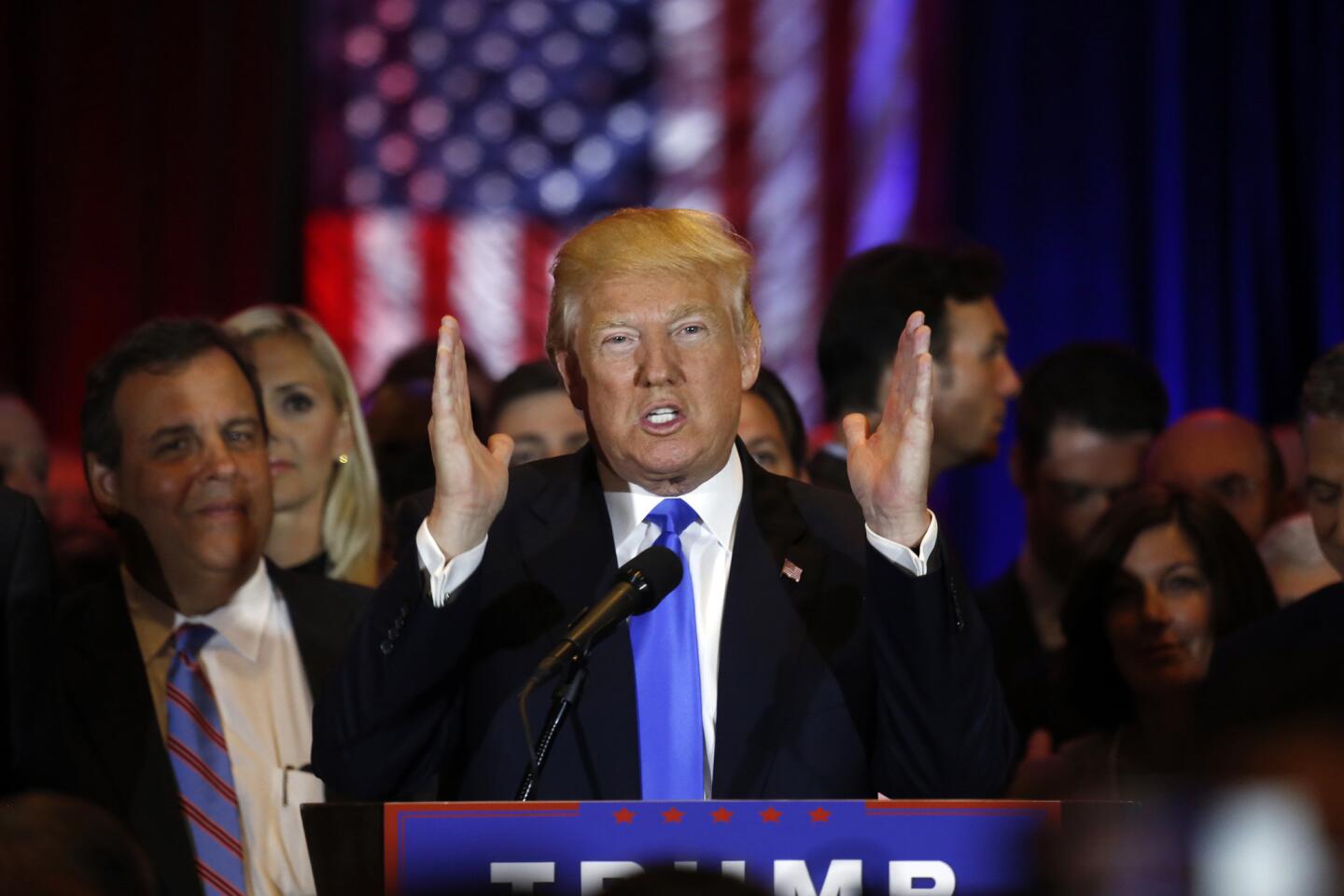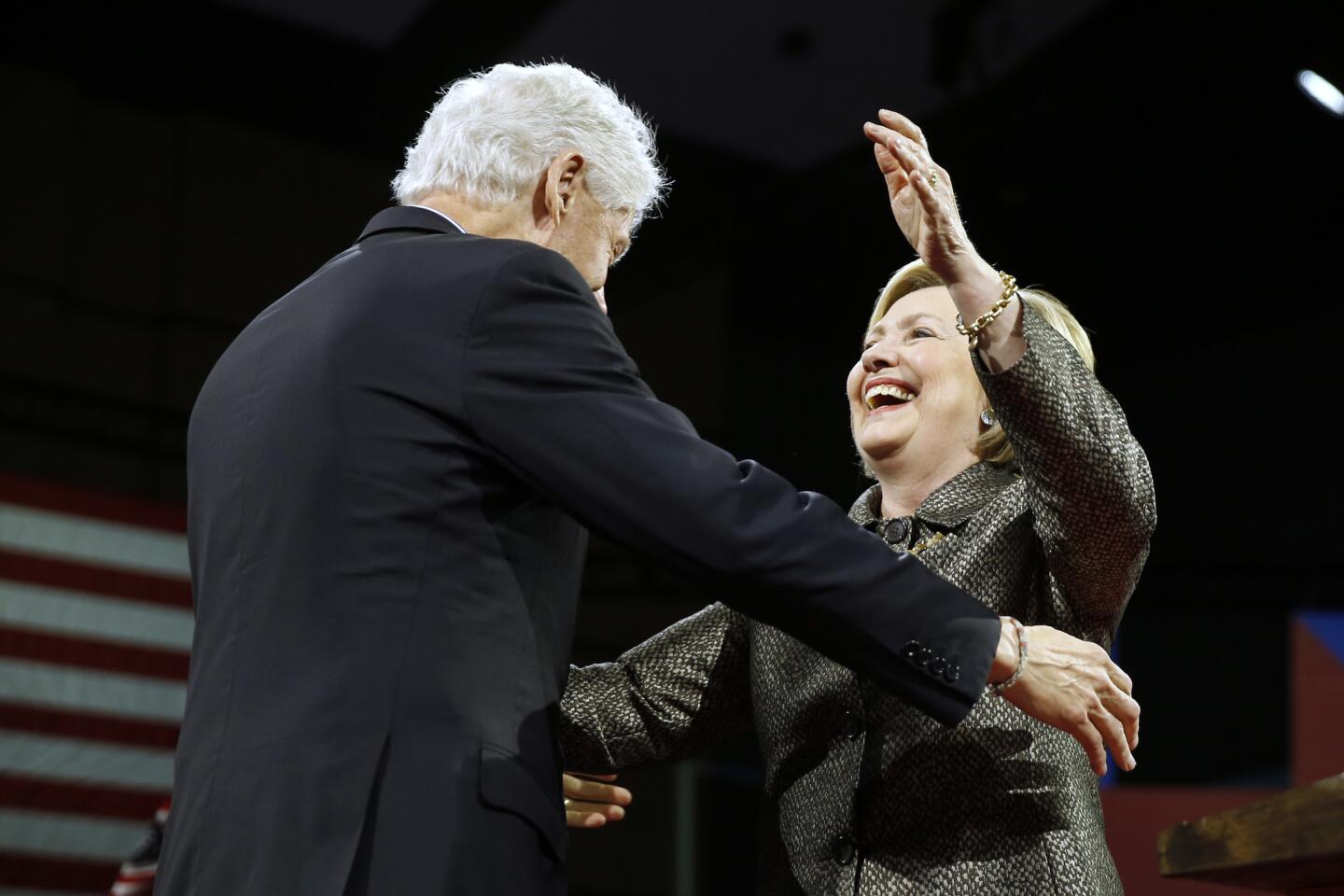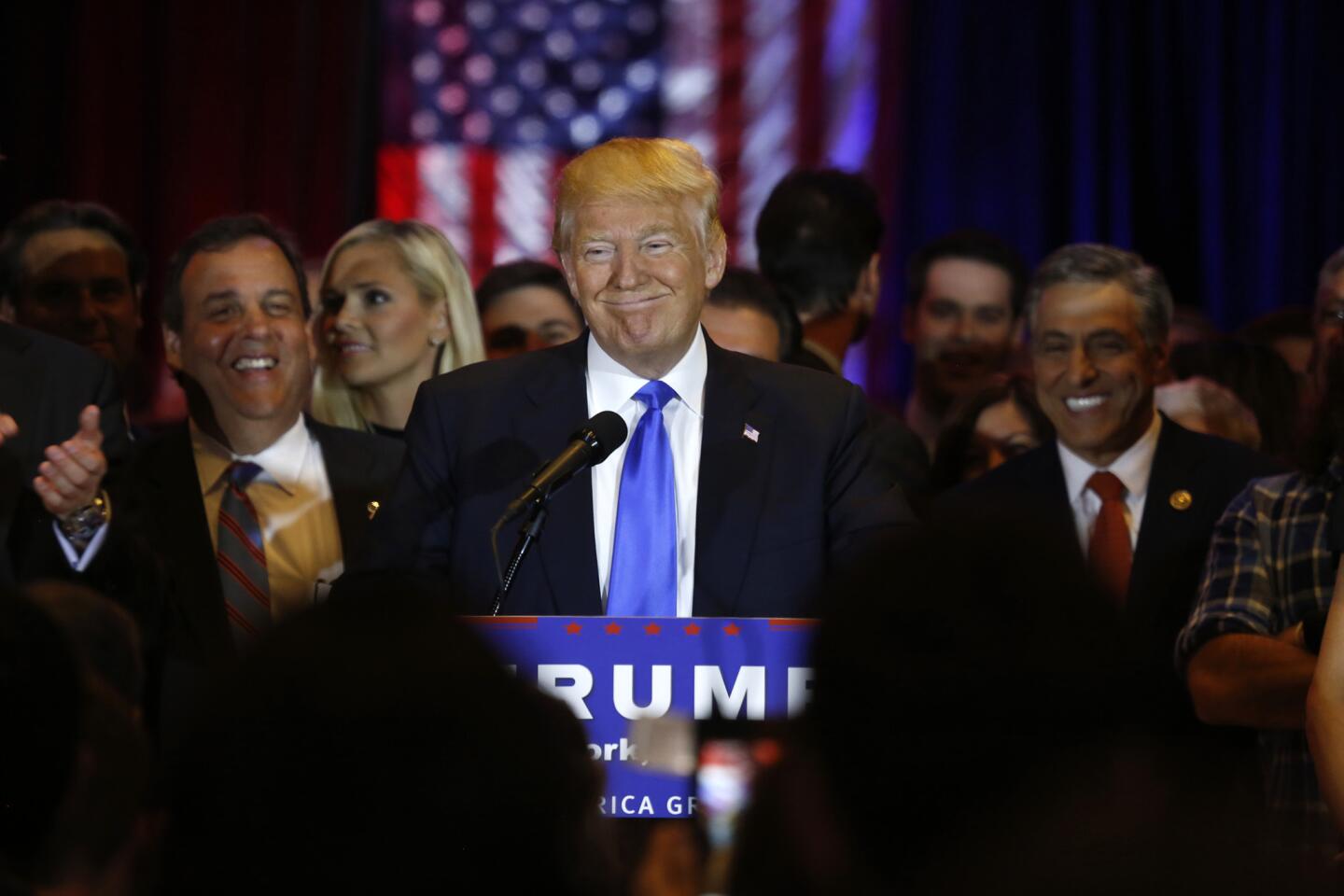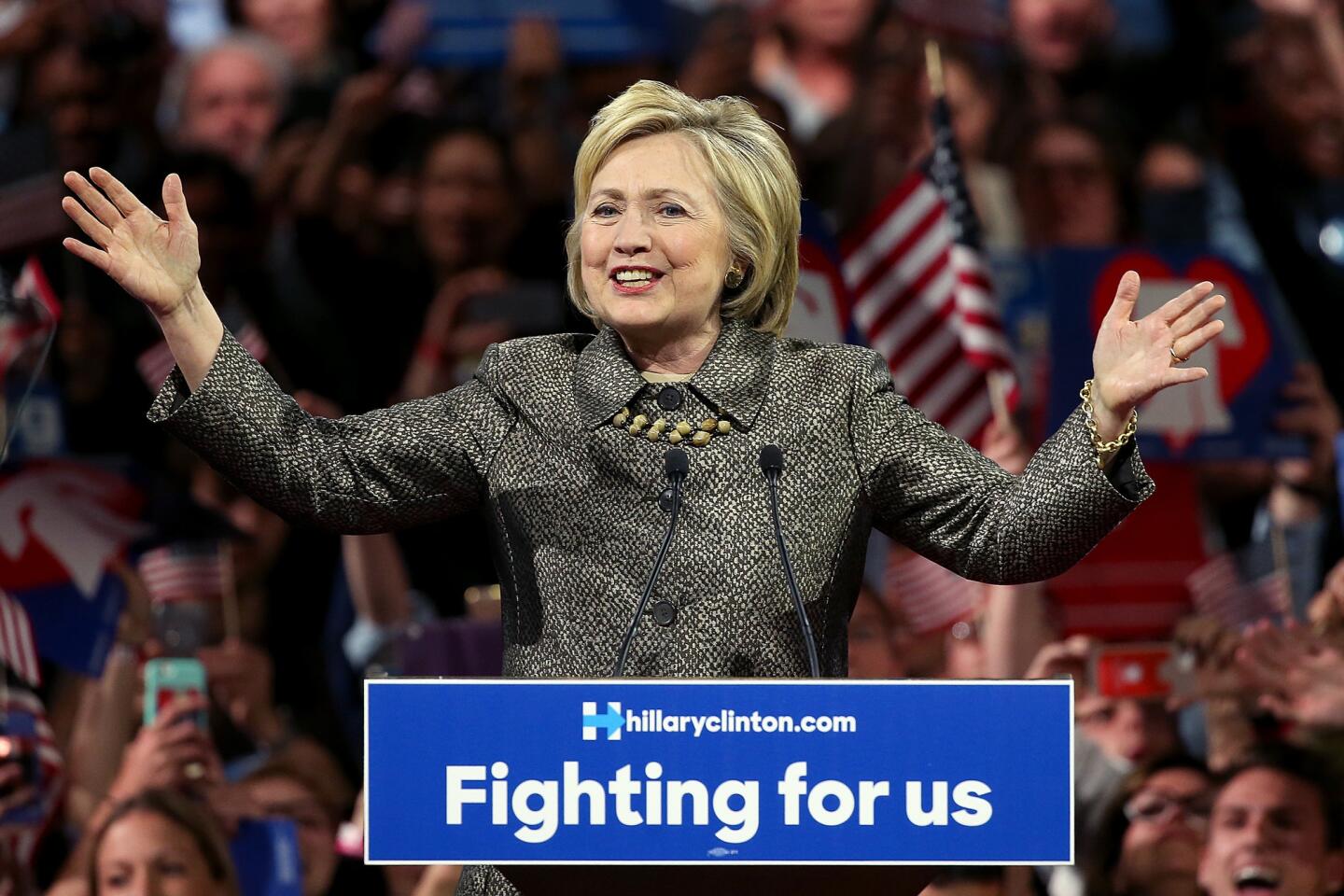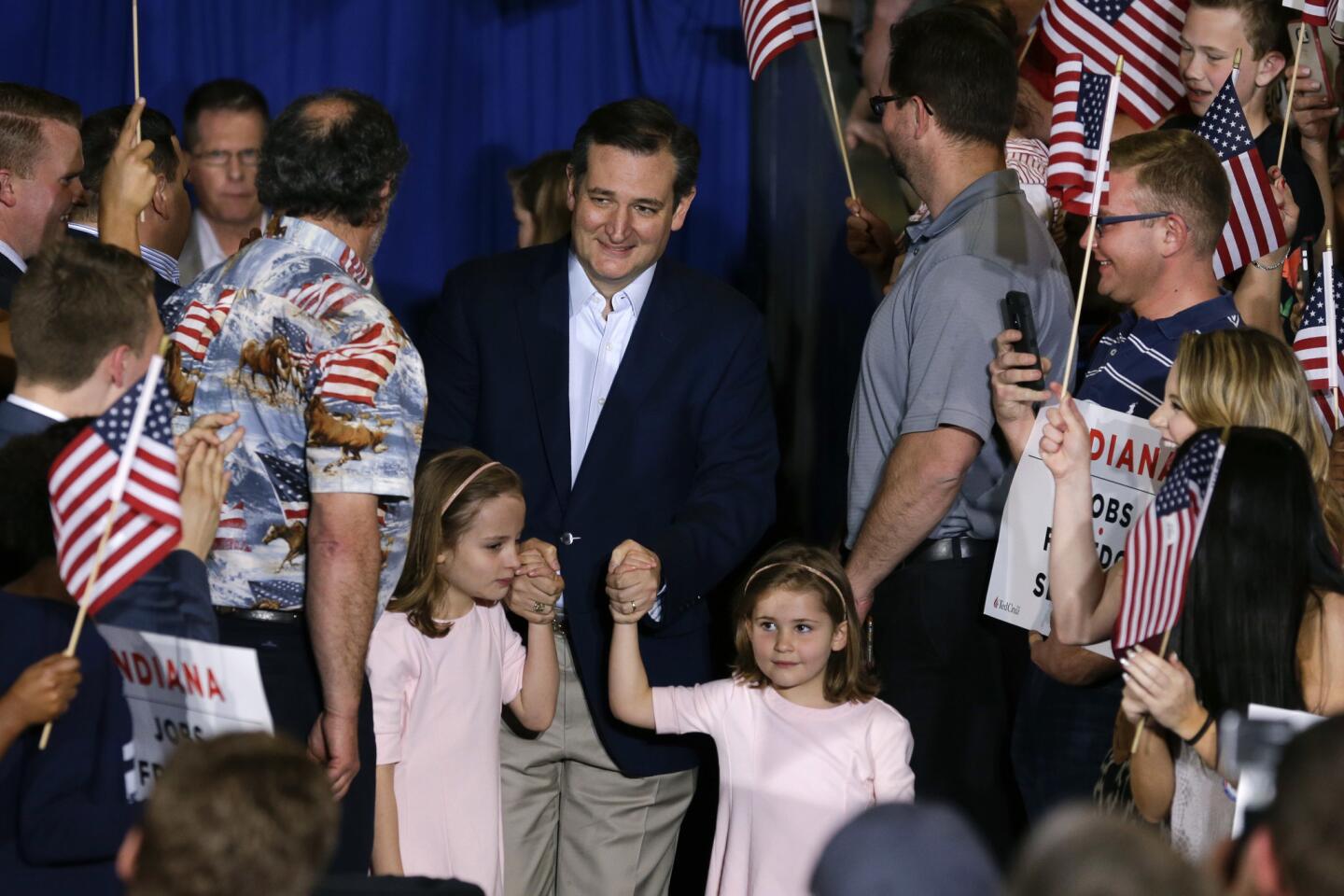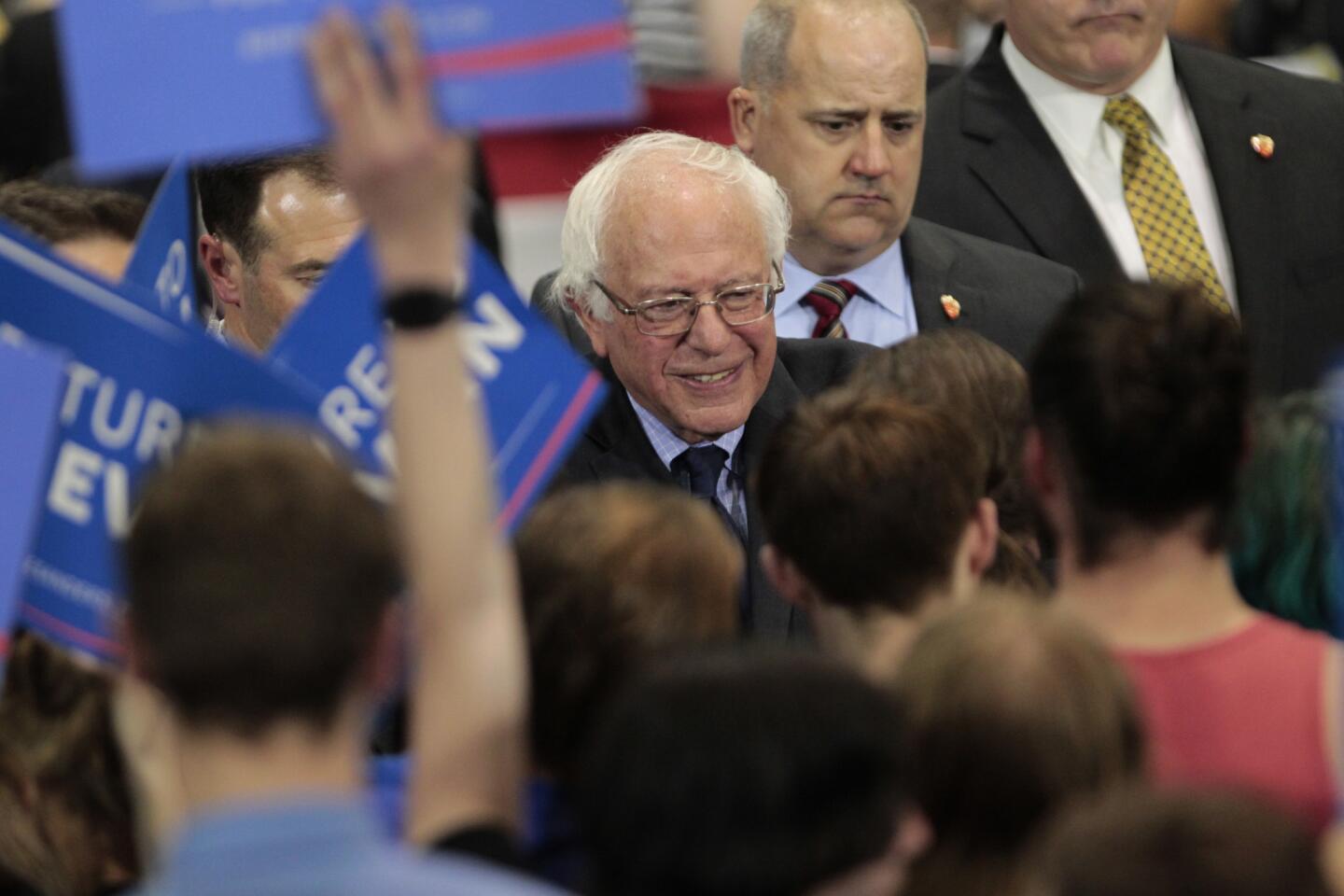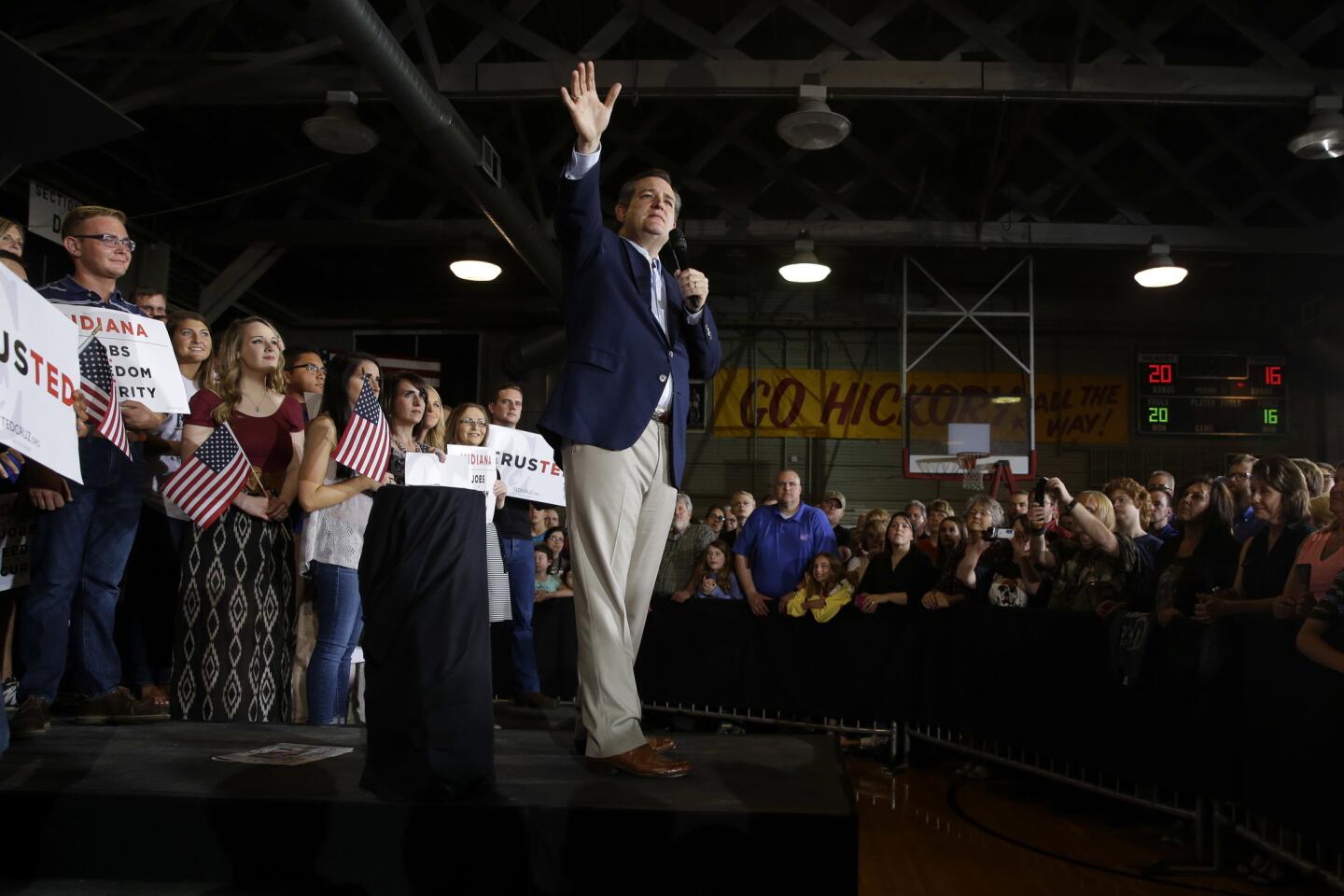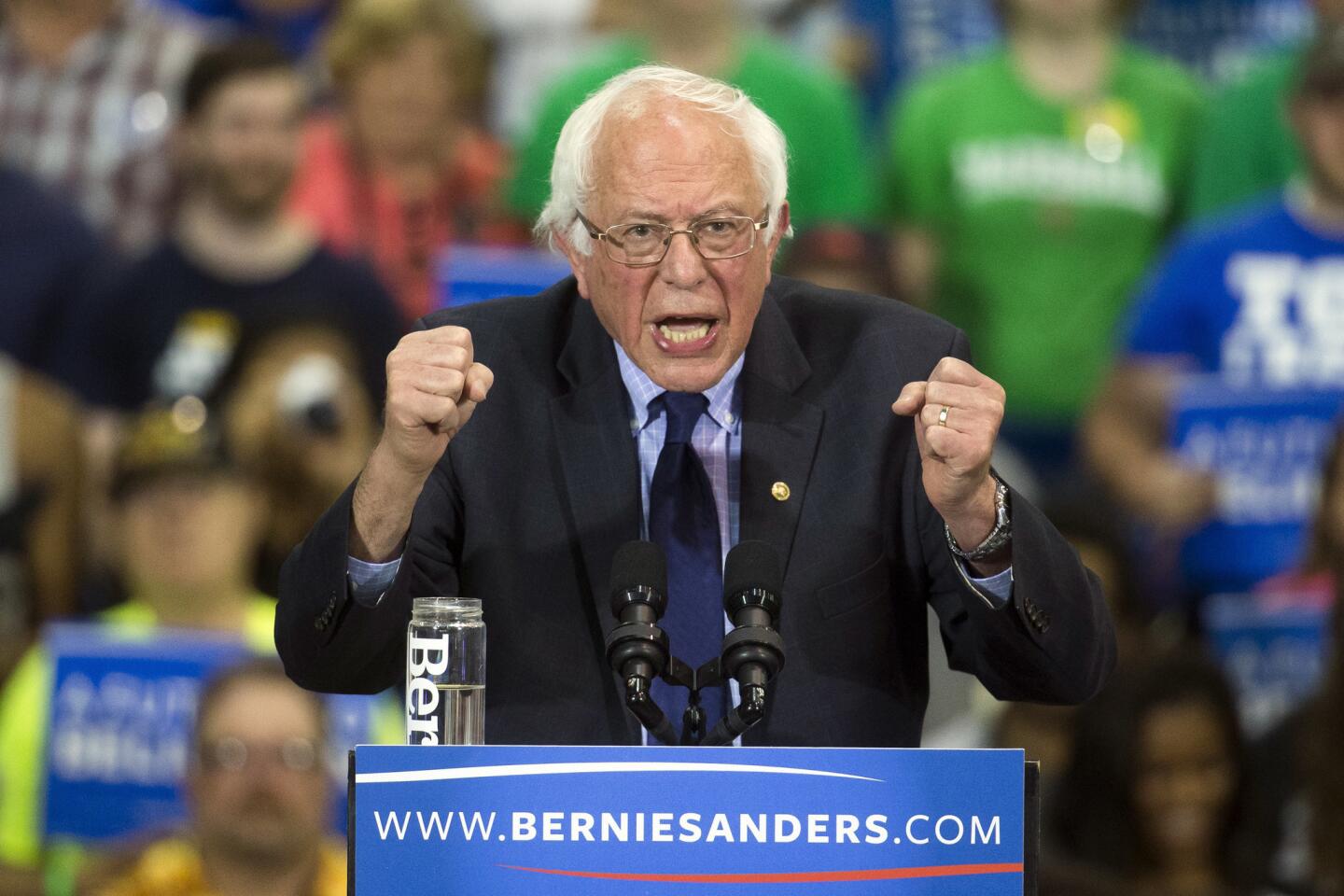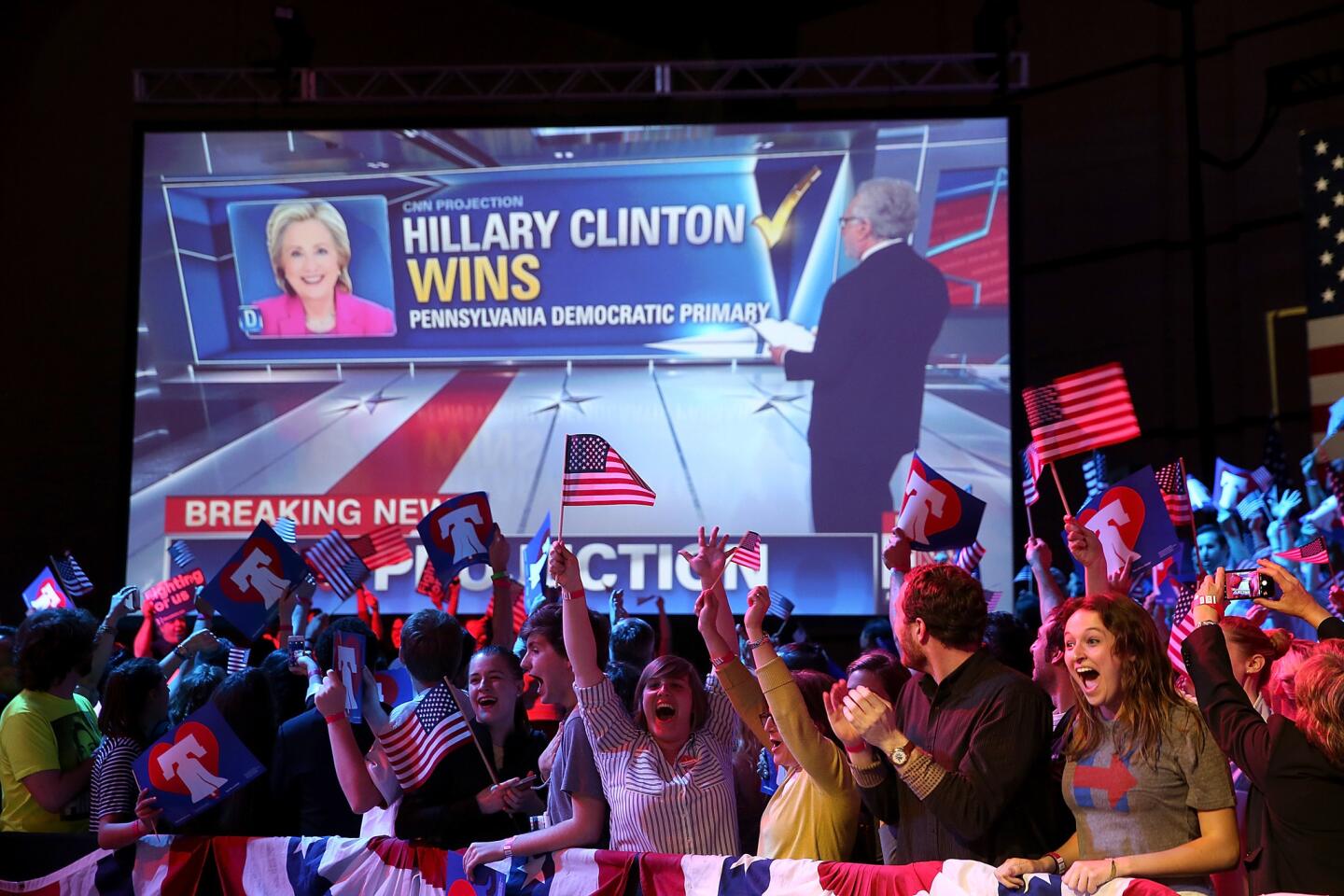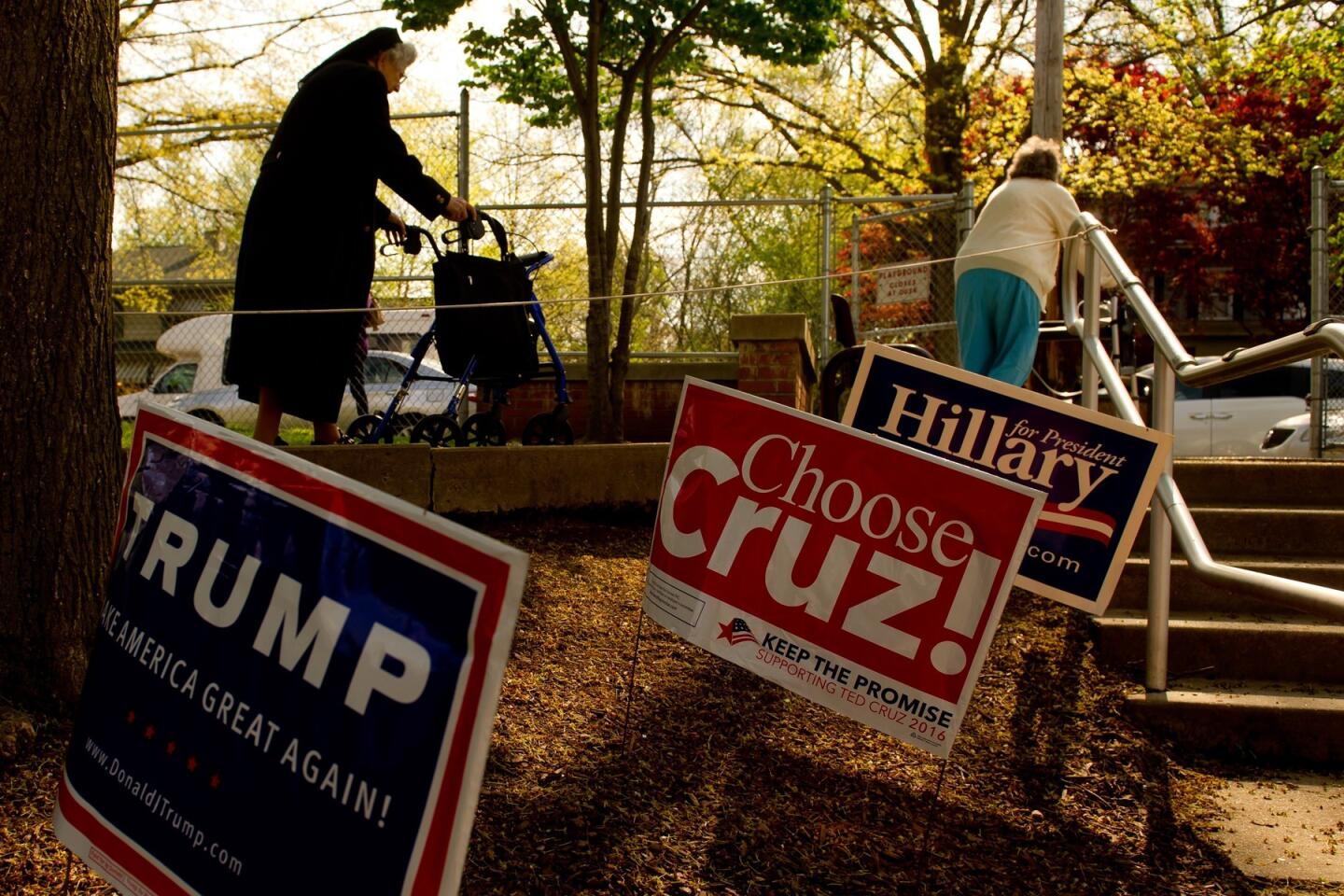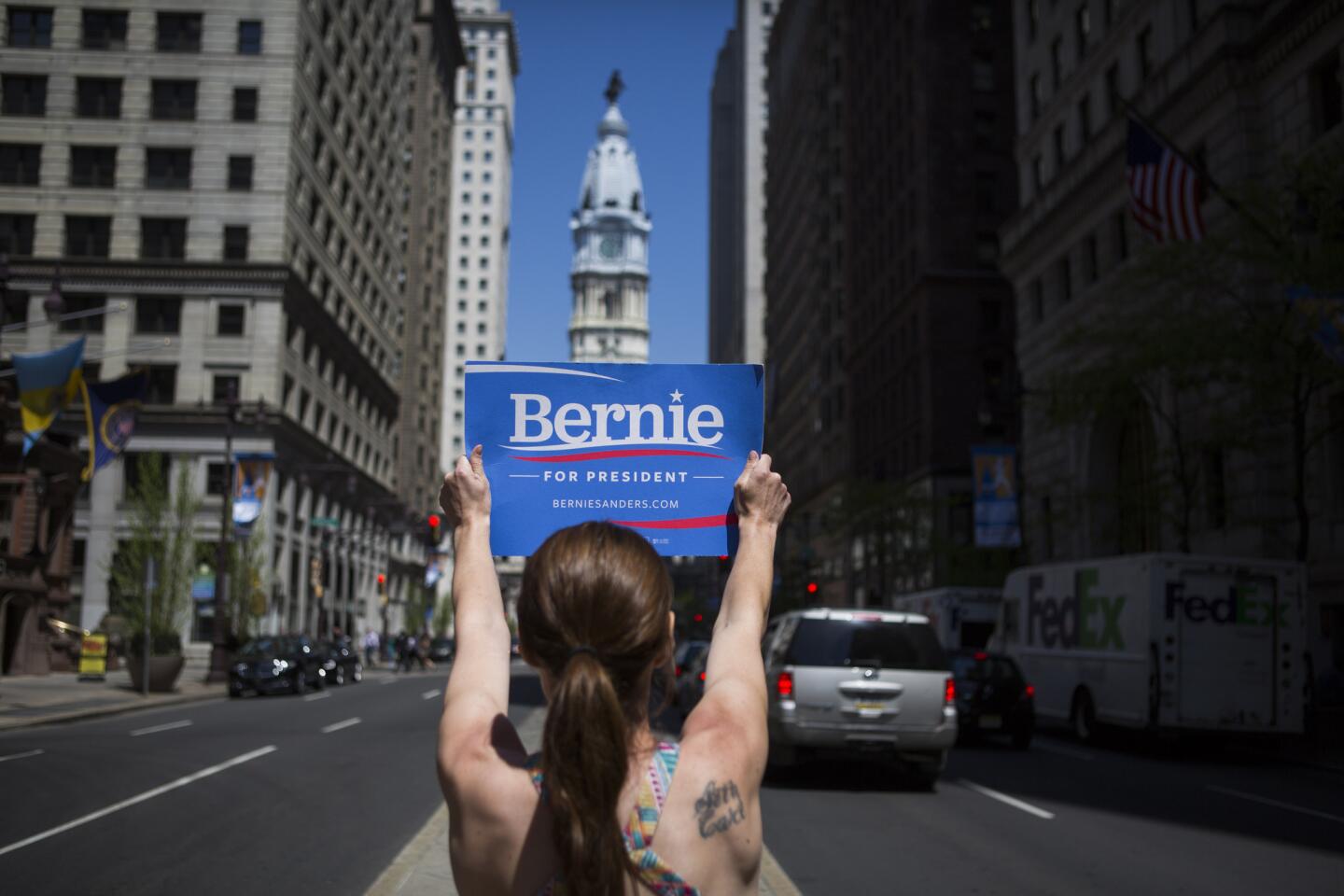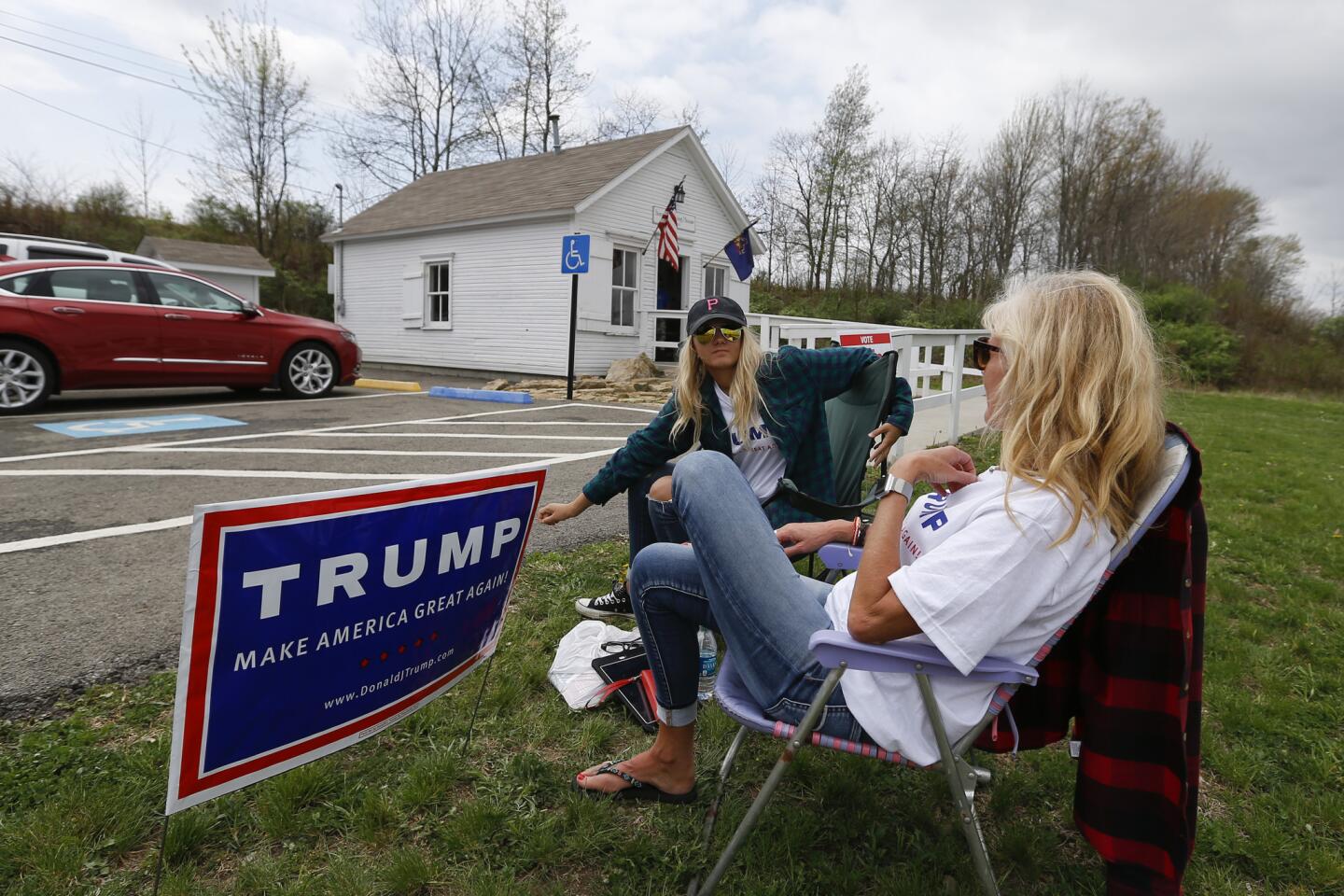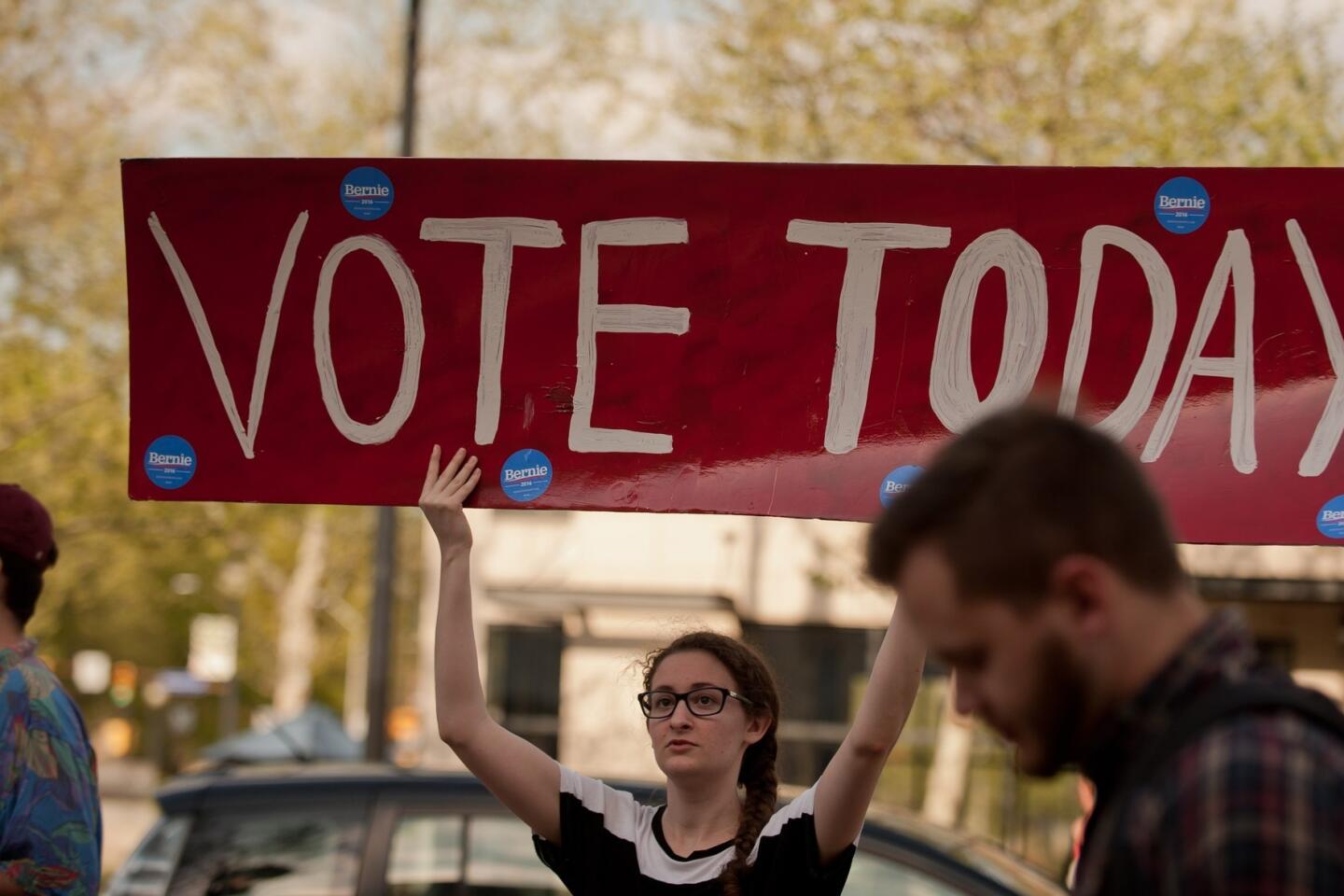With five-state sweep, Trump closes in on winning nomination without a convention fight
- Share via
Reporting from West Chester, Pa. — Donald Trump stacked up five more wins Tuesday, sweeping the East Coast primaries in a decisive showing that moved him significantly closer to capturing the Republican presidential nomination and avoiding a bruising fight at the party’s convention this summer.
Trump’s victories — in Connecticut, Delaware, Maryland, Pennsylvania and Rhode Island — were by commanding margins, giving him the overwhelming majority of 172 delegates at stake.
Speaking in New York City, at the gilded office and condominium tower that bears his name, Trump declared the fight for the GOP nomination ended — “I consider myself the presumptive nominee, absolutely” — and said his rivals, Texas Sen. Ted Cruz and Ohio Gov. John Kasich, should immediately stand aside.
“As far as I’m concerned, it’s over,” he said.
“We should heal the Republican Party,” continued Trump, who cited his business success as proof he is the only one qualified to do so. “I’m a unifier.”
The Manhattan real estate mogul, who won his home state of New York last week in a landslide, had been expected to do well Tuesday in the heavily urbanized Atlantic corridor.
Even so, and “even if you don’t like Donald Trump, it’s hard to deny the magnitude of his victories,” said Stuart Rothenberg, an independent campaign analyst.
Trump’s dominating performance was important from both practical and psychological standpoints, pushing him closer to the 1,237 delegates needed for a first-ballot victory at the party’s July convention and also shaping perceptions of the race to his great advantage.
In exit poll interviews, nearly 7 in 10 Republicans who cast ballots in Pennsylvania, Maryland and Connecticut suggested the candidate who gets the most votes — which has been Trump — deserves to win the nomination, even if he falls short in the delegate count.
“There’s kind of a growing sense of inevitability,” said Rothenberg, publisher of the nonpartisan Rothenberg & Gonzales Political Report. “The trajectory now suggests he will be very close to 1,237 by the end of business on June 7, and probably close enough to sweep up the crumbs he needs to be the nominee.”
California, with 172 delegates — more than any state — will be important in determining whether Trump clinches the nomination or falls just short.
He began the day with 845 pledged delegates and was on track to win at least 105 more. Cruz had 559 and Kasich 148, and picked up only half a dozen more between them, according to nearly complete returns.
The most crucial fight may come in Indiana, which votes next Tuesday.
Cruz and Kasich are both mathematically eliminated from winning the nomination outright, so their only hope is to stop Trump short of a first-ballot victory, throwing the Cleveland convention open to alternatives. Trump’s two rivals forged a tenuous non-compete agreement this week as part of a last-ditch strategy to stop the front-runner, but it quickly showed signs of fraying.
Indiana, where Cruz is strongly competitive, may be their last realistic chance to stop Trump’s momentum and deny him the 1,237 delegates he seeks.
Brian Howey, a longtime student of politics in the state, rated the contest a toss-up with a slight lean toward Trump, who has
enjoyed a small edge in
polls.
“It’s the classic ground game and political skills versus national figure and air war,” said Howey, comparing the respective strengths of Cruz and Trump.
The winner will take most of Indiana’s 57 delegates.
Even as the Trump wave built Tuesday night, his opponents insisted they were undeterred.
“The path to 1,237 remains narrow,” Rory Cooper, a spokesman for the Never Trump political action committee, said in a written statement, “and he just left the most favorable part of the map for him in the Northeast. Moving west, his ability to keep pace becomes more difficult.”
The five states that voted Tuesday included only one pure winner-take-all contest: Delaware, which awarded all 16 delegates to Trump. The rest apportioned their delegates through a combination of statewide and congressional district-level results.
Pennsylvania was the day’s biggest prize and also the most complicated.
Of the 71 delegates at stake, just 17 will be required to vote for the winner on the first ballot of the Republican National Convention. The rest, elected by congressional district, can support whomever they choose, though many said before Tuesday’s balloting they would support the candidate who carried their district.
Trump’s commanding statewide victory — he was winning 57% of the vote with nearly all the ballots counted — made it all the more likely he would take most of Pennsylvania’s delegates.
For his part, Cruz always faced a difficult road Tuesday, given his cultural conservatism and religiosity in a region that tends toward neither. For the last several days he has focused on Indiana, where a sizable evangelical population and buttoned-down Midwestern sensibility offer a better political fit.
Speaking even before the polls closed, in Knightstown, Ind., in the gym where part of the movie “Hoosiers” was filmed, Cruz minimized Trump’s five-state romp.
“The media is going to say the race is over,” he said. “But I’ve got good news for you. Tonight this campaign moves on to more favorable terrain. Can the state of Indiana stop the media’s chosen Republican? There is nothing Hoosiers cannot do.”
On Sunday night, his campaign announced an alliance with Kasich, in which the governor would essentially cede Indiana in return for Cruz standing down in primaries in Oregon, which votes May 17, and New Mexico on June 7. Kasich made no public remarks Tuesday night.
But the accord was quickly mired in confusion, with Kasich refusing to explicitly steer his Indiana supporters to Cruz and a pro-Cruz political action committee continuing to air anti-Kasich TV ads in the state.
Howey, who publishes the nonpartisan Howey Politics Indiana newsletter, said it was unclear how the arrangement would play in his state.
“Hoosier voters don’t like being told what to do, so it’s hard to see how it plays out,” Howey said.
“I suspect the question will be answered late next Tuesday night. If Cruz pulls out a win, everyone will say it was a brilliant move. It not, people will say it came too late.”
mark.barabak @latimes.com
Twitter: @markzbarabak
noah.bierman @latimes.com
Twitter: @Noahbierman
Barabak reported from San Francisco and Bierman from West Chester. Times staff writers Kate Linthicum in New York and Lisa Mascaro in Knightstown contributed to this report.
More to Read
Get the L.A. Times Politics newsletter
Deeply reported insights into legislation, politics and policy from Sacramento, Washington and beyond. In your inbox three times per week.
You may occasionally receive promotional content from the Los Angeles Times.
